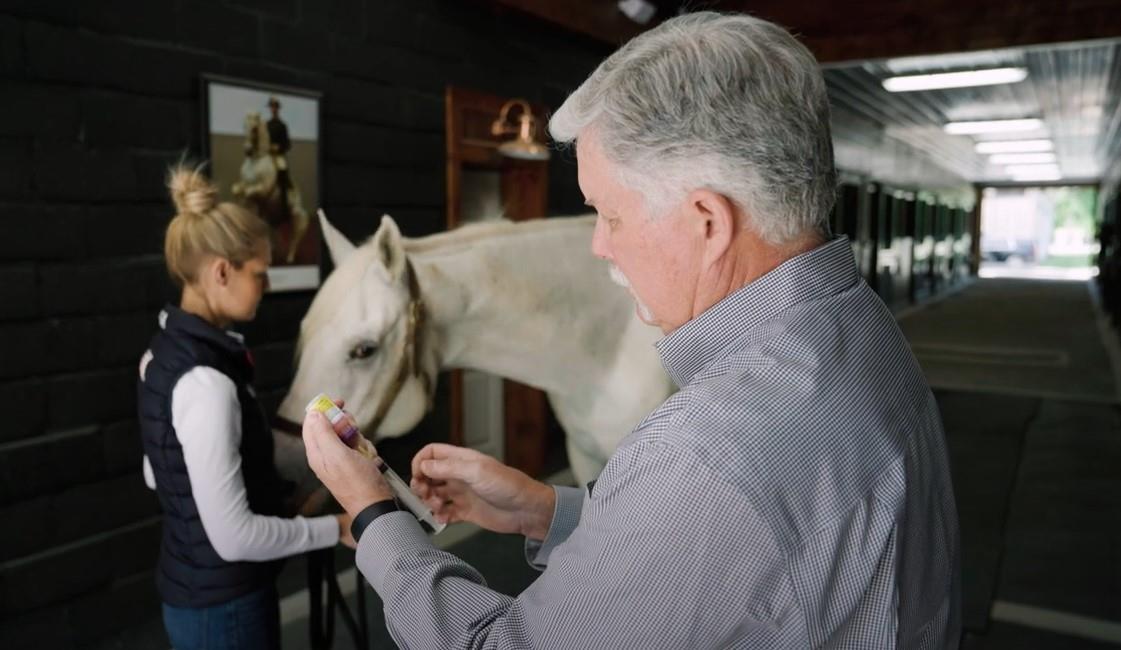Watch as Dr. Kevin Hankins talks about the importance of vaccinating your horse and a number of key factors to consider when determining the best timing and vaccine.
About This Video
Annual vaccinations are key to keeping horses healthy, and it is important to know the difference between core and risk-based vaccines to ensure your horse is protected. The five core vaccines are for Eastern and Western equine encephalitis, tetanus, West Nile virus, and rabies. The most common risk-based vaccines are for equine influenza and equine herpesvirus-1 and -4. Those three antigens are responsible for a large majority of respiratory diseases. In this video, Dr. Kevin Hankins talks about the importance of vaccinating your horse and several key factors to consider when determining the best timing and vaccine.
When deciding which vaccines are best for your horse, there are several factors to consider, including geographic location, vaccination protocols for senior horses, single or all-in-one vaccines, and vaccination timing. Geographic location is an essential factor for determining which “risk-based” vaccines are best for protecting your horse’s health.
It is beneficial to have a single injection like Core EQ Innovator® to vaccinate against all five core diseases because it raises compliance, especially for the rabies vaccine. In addition to increasing vaccine compliance, it also makes the vaccination process easier because it is put in a one-milliliter dose.
It is imperative that horse owners communicate closely with their veterinarians about each horse’s circumstances and vaccination needs. Several different factors can come into play, so it is important for the veterinarian and horse owner to sit down together and formulate a plan for right now and in the future.
Additional Information
About The Expert

Dr. Hankins is currently the managing equine veterinarian in equine veterinary operations at Zoetis. Previously, he served as head of equine field service at Kansas State University Veterinary Medical Teaching Hospital and led hospital outreach as well as student practice management programs. Dr. Hankins is currently a member of the AAEP Infectious Disease Committee, AAEP Biologics and Therapeutic Agents Committee, as well as the Executive Board Kansas Horse Council. Receiving a Bachelor of Science in Animal Science and Industry, Master of Veterinary Science, and Doctor of Veterinary Medicine from Kansas State, Dr. Hankins also holds a Master of Business Administration from Colorado State University.



